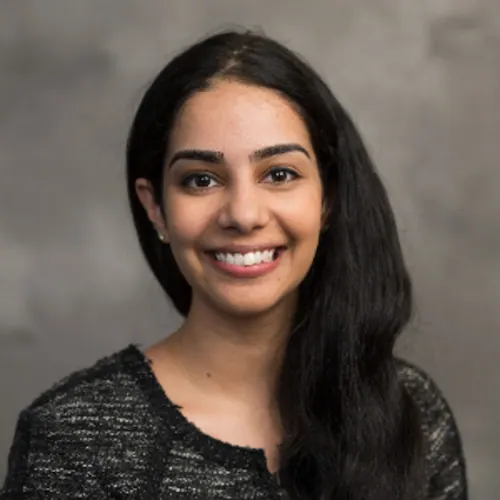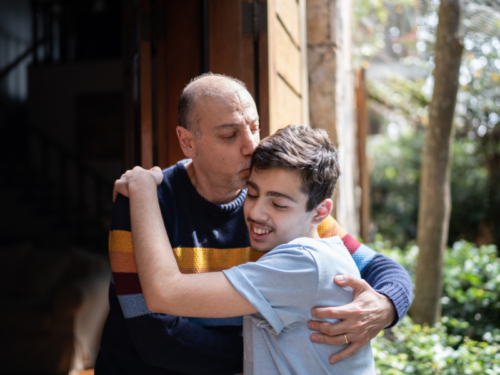
Table of Contents
Ask a Clinician: Why Is There Controversy Around Neurodiversity?

Written By: Dr. Rasna Kaur Neelam

Clinically Reviewed By: Dr. Don Gasparini
August 14, 2023
5 min.
The umbrella of neurodivergence—encompassing people whose brains function outside the typical “norm”—is ever-evolving. For this article, Charlie Health spoke with Megan Lederman, a mental health provider with over a decade of clinical neurodiversity experience, to discuss the controversy around neurodiversity.
Learn more about our Clinical Review Process
Table of Contents
Please introduce yourself to our Charlie Health readers. What made you interested in the topic of neurodiversity?
My name is Megan Lederman, and I work at Charlie Health as the Director of Clinical Programming. I’ve been interested in the concept of neurodiversity for over a decade, both theoretically and in my professional practice. I became interested in building a clinical treatment track for neurodivergent folks with concurrent mental health concerns as a part of our curated group programming at Charlie Health. I noticed, along with other therapists, that many of our neurodivergent clients struggled to fit within programming models designed primarily with neurotypical clients in mind, so we wanted to offer something more tailored.
Can you define the phrases “neurodivergent,” “neurodiversity,” and “neurotypical?” How was the term “neurodiversity” coined, and what is its history?
Coined by Australian Sociologist Judy Singer in 1998, the term “neurodiversity” is used in the global Disability Rights Movement to refer to variations in neurotypes—an essential dimension of a thriving ecosystem. The Neurodiversity Movement is a Civil Rights Movement. Its goal is to destigmatize neurodivergence and move towards inclusion, empowerment, and broad social changes toward equity and access.
The neurodiversity paradigm is rooted in social rather than medical models of disability. The social model of disability reframes the notion that disability is rooted squarely in the individual experiencing challenges. Instead, it places the sources of the issue on societies and systems built largely by neurotypical folks for neurotypical folks. By embracing neurodiversity and working towards representation and inclusion, neurodiversity advocates believe that our institutions, systems, and public spaces will be enhanced and the well-being of neurodivergent folks will be better supported.
Who is neurodivergent?
The notion of a neurodivergent umbrella—and who fits under this umbrella—is an evolving conversation. That said, the term neurodivergent was developed to describe autistic folks, people with ADHD, and people with other neurodevelopmental conditions who may possess cognitive processing styles that diverge from the norm. This continues to comprise the most widely accepted definition. Folks with “typical” neurotypes, on the other hand, tend to have cognitive processing styles that are similar to the majority.
Could it ever be unclear whether a person is neurotypical or neurodivergent?
Of course! All minds are unique; the question here becomes whether the descriptor “neurodivergent” helps an individual to make sense of and find support for their experience.
How do you explain neurodivergence to an individual, parent, or family member who does not believe it is real?
Every brain is unique. Some brains process information and function differently. People with those kinds of brains can be clustered together to identify support needs in helpful ways.
Join the Charlie Health Library
Get mental health updates, research, insights, and resources directly to your inbox.
You can unsubscribe anytime.
Is a clinical diagnosis required for people to refer to themselves as neurodivergent?
Neurodivergence is not a clinical diagnosis. Rather, it is a term rooted in the neurodiversity framework that can help one to understand, recognize, and embrace natural variations in neural function and cognitive style.
Medical diagnoses such as autism or ADHD, on the other hand, begin with an assessment by a qualified mental health professional. Medical and mental health assessments and diagnoses can help people identify specific support needs and obtain treatment to meet these needs. Research suggests that autism—a diagnosis that sits under the neurodivergent umbrella—is underdiagnosed in women and girls and in people of all genders who are of Black and Latino descent.
Do you think social media plays a role in self-diagnosis? Do you feel self-diagnosis is a problem?
Neurodivergence isn’t a diagnosis, so if someone identifies as neurodivergent, this doesn’t represent self-diagnosis. Self-diagnosis of autism—which is a DSM 5 diagnosis—is a controversial topic in autistic communities and medical and mental health communities alike.
Autism is usually diagnosed in childhood. Self-diagnosis of autism in adolescence and adulthood is on the rise, partly due to increased public awareness via channels of information accessed in social media and media outlets. Many folks begin with self-diagnosis and then seek a formal diagnosis. Others who self-diagnose as autistic do not seek a formal diagnosis.
Why is this the case?
Finding medical or mental health professionals qualified and willing to diagnose autism in adults can be difficult, and once found, the process can be costly. Self-diagnosis advocates argue that systemic inequities, barriers, and gate-keeping prevent some folks from receiving a professional diagnosis. They suggest that professional underdiagnosis of autism should not prevent folks not formally diagnosed from identifying with the wider autistic community or from connecting with information that may be helpful to them.
Others argue that self-diagnosis is dangerous because it occurs unlinked from the medical community and thus from referrals to support. There is a concern that folks may not be qualified to discern symptoms and signs correctly, and this may lead to misdiagnosis. Some argue that trends in widespread self-diagnosis may ultimately lead to public confusion about what autism is and is not, as the lines between who is or isn’t autistic may become blurred.
Do neurodivergent people need to change their thoughts, emotions, and behaviors to “fit in” with a predominantly neurotypical society? Should they?
One of the key objectives of the Neurodiversity Movement is to reject longstanding treatment strategies for autism that seek to teach and train neurodivergent folks to mask their neurodivergence—a concept known as masking. Research shows that masking creates unnecessary stress and, at its extreme, can be traumatic.
Do you think of neurodiversity as a condition needing treatment or an aspect of someone’s identity that is neither good nor bad? How does this change when comparing people with “high functioning” versus “severe” autism?
In the DSM-5, we no longer use words like “high and low functioning” to describe autism. Instead, we talk about needed support levels an individual might need to thrive in various environments. This is indeed not “good” or “bad”—though we may look at barriers to inclusion in society that perpetuate unequal access as decidedly a bad thing that should be remedied.
Critics argue that the Neurodiversity Movement—with its emphasis on empowerment, social models of disability, and changing pathologizing views of neurodivergent identities—minimizes or erases the challenges faced by people with significant support needs.
Others counter that the emphasis on neurodiversity as a natural and important component of biodiversity creates additional pathways through which individuals with significant support needs can find social recognition and respect.
Neurodivergent therapy at Charlie Health
If you are looking for neurodivergent-specific therapy, Charlie Health is here to help. Our compassionate mental health professionals are here to listen to your story, understand your needs, and match you with an appropriate treatment plan that prioritizes neurodivergent care.
Charlie Health’s personalized virtual Intensive Outpatient Program (IOP) offers mental health treatment for teens, young adults, and families who are dealing with a variety of mental health struggles. Fill out this form to get started today.





